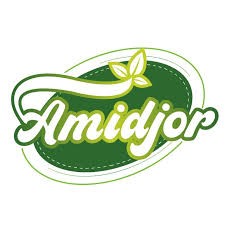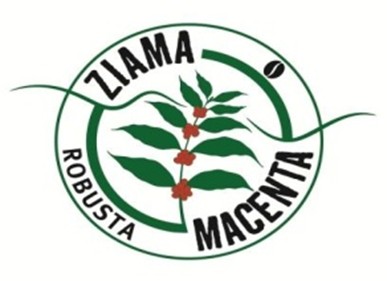Amidjor is a company specialized in agri-food production, processing, and training.

A native of Luanda, Angola, Marlene studied International Relations at the University of Minho, Portugal, and supply chains at the Catholic University of Lisbon, Portugal. In 2020, she attended an executive training in Emerging Markets at Harvard University, United States of America (USA). She is also an alumni of the Founder Institute (FI) Luanda, a pre-seed startup accelerator that supports local leaders developing their skills and business relationships by integrating the global FI network.
Marlene is a strong human resources professional skilled in negotiations, business planning, international business and international trade. She is dedicated to developing a new spectrum of food processing business in Angola, helping others aspiring entrepreneurs to succeed in boosting their business.
After years of experience working in several companies and manufacturing industries in Angola, Marlene started her entrepreneurial career in 2019 with her pilot project FoodCare. She strives to promote Angolan food and to create economic opportunities for local farmers.

Type: Private Limited Company
Year of Founding: 2020
Number of Employees: 36 – 11 full-time and 25 part-time
CEO: Marlene José
Business Model
FoodCare aims to add the Angolan gastronomy to the world map and to promote traditional Angolan food products by producing and packaging products that meet the highest standards set by international markets.
FoodCare was created from a conviction to address food insecurity by producing African products that are of high quality and hygiene. Often, local products that are rich in nutrients are contaminated during processing, and hence, are constricted to informal markets. To address issues with the accessibility and availability of these culturally- and nutritionally rich products, FoodCare is driven by a motto of food safety. Hence, its strategy is to process local food in a way that preserves their originality while complying with hygiene and food safety standards.
FoodCare specialises in the processing of different types of products under the brand “mavu”, which means earth in Kimbundu, one of Angola’s national languages. The desire of FoodCare is to have its products available in all countries where the African community is large, including by exporting them to international markets.
FoodCare is a food processing and packaging company in Angola that leads the development and promotion of high quality Angolan African on local, regional and international markets.
Relationships with Smallholders
By promoting local food products, FoodCare is supporting those involved in the national agri-food value chain, including small-scale farmers. They support local farmers shifting from a rain-fed agriculture to production systems with solar-based irrigation systems.
Furthermore, the company establishes relationships with small food processors in Angola, to collectively achieve support and training on food processing practices, business management and financial support for machinery and infrastructure.
Products and Markets
The wide line of “mavu” products includes:
• Private Labelling or bulk of dried mango, pineapple, papaya, pitaya and frozen pulp of mango, pineapple, papaya, pitaya and maracuja,
• Peanut butter,
• Cassava leaves,
• Various flours and starch,
• Fresh, rehydrated and frozen mushrooms,
• Pondu (saka-saka),
• Smoked catfish,
• Kwanga (chikwanga),
• Egusi (pumpkin seeds) balls,
• Mopane worms,
• Fermented corn juice.
FoodCare is selling to most of the supermarkets in Angola and making deliveries through e-commerce via its website. The products are distributed in four provinces through Hypermarket Kero, the largest hypermarket in Angola. Its products are also exported on the African market to Congo, Namibia and Kenya.
The company has also started exporting to Europe (Portugal) and to the United States.
The services offered by FoodCare comprise of agri-food processing, packaging, distribution and private labelling.
FoodCare’s products are processed in accordance to food safety standards and the company is certified by HACCP (Hazard Analysis and Critical Control Points) and the FDA (U.S. Food and Drug Administration).
Innovations: Milestones and Expansion Plans
FoodCare benefited from the national support programme for Production, Diversification of Exports and Substitution of Imports (Lei do Programa de Apoio à Produção, Diversificação das Exportações e Substituição das Importações, PRODESI). This enabled the company to secure financial support from banks (386 million kz) to purchase machinery, cars and invest into business development. Since its creation, Food Care has increased its production capacity from 8 to 32 tonnes per month.
FoodCare plans to further develop its infrastructure to increase sales and export, and eventually create new products. In its next phase, FoodCare seeks to invest in the production of PET packaging to address the unavailability of local packaging, which forms a major barrier for many local processors in Angola who are interesting in entering the formal market.
The company also aims to expand by having a more reliable raw material value chain, available year-round. Given that 90% of the farmers in Angola depend on rain-fed agriculture, most of FoodCare’s products are currently limited to being seasonal. Moreover, limited production volumes result in high prices. FoodCare is searching for partnerships to support the farmers that it works with and enhance the consistent availability of raw materials. It strives to support local farmers to install irrigation systems to water their fields even when it is not raining, thus ensuring regular yields at an acceptable price. The company helps its suppliers accessing and implementing new technologies such as solar water pumps to enable them grow fresh, nutritional vegetables the whole year.
In terms of challenges, the company’s main competitors are the public market and product substitutes that replace national foods. Furthermore, the company finds that the biggest challenge in the market is the need for high investments since it is difficult to access technical and financial support and training for management skills.
Success Factors and Lessons Learned
FoodCare aligns with several Sustainable Development Goals (SDGs), including 1 (no poverty); 3 (good health and well-being); 8 (decent work and economic growth) and 12 (responsible production and consumption).
FoodCare stands out as a business because of its investments in innovation, quality, accessibility and notably, food safety. It is abiding to rigorous food safety standards which enable the company to export to the European and American continents.
To grow as a SME in Africa, FoodCare’s CEO Marlene relies on planning and executing business goals, in addition to mastering the craft and ensuring consistency. The constantly changing markets and customers’ expectations also require to continuously adapt and adjust the business model and products. Engaging in continuous learning and with partners that provide support in training, skills development and access to finance has been key for FoodCare.
The company provides mentoring, engages with and supports the empowerment of others in the value chain, including by providing services in product design, processing mentorship, private labelling and barcode assistance. The company also participates in the Angolan Industrial Association (AIA) and the Angolan Association of Young Producers (AAJP) to support local economic development to support local economic development.
The company’s successful expansion also lies in its continuous efforts to work with new distributors and to expand opportunities for exporting its products. FoodCare has exhibited its products in various trade fairs, including international events in Europe and the USA. In 2022, FoodCare was the first Angolan food company to participate in one of the most coveted world shows, the Summer Fancy Food Show, in New York, USA. This was an initiative of the United States Agency for International Development (USAID) Trade Hub under the African Growth Opportunity Act program (AGOA) targeting Southern African countries.
Additional Resources
Join our Forum to discuss and explore how to encourage innovations across agricultural value chains to transform food systems in African, Caribbean and Pacific countries and beyond, promote sustainable agriculture & leverage investments. Share insights, ask questions, and collaborate on innovative solutions for a greener future.
Recent Business Profiles

Amidjor is a company specialized in agri-food production, processing, and training.

ADECAM is a community-driven organisation in Guinea dedicated to protecting, promoting, and developing the Ziama-Macenta Geographical Indication coffee, while supporting smallholder producers...

Tac Maz Sustainable Ventures is a climate-smart social enterprise in Malawi supporting smallholder farmers through sustainable poultry and horticulture production.

Bono Salus is a Zimbabwean woman-led agribusiness specializing in urban hydroponic farming of microgreens.

The Nut Place is a Nigerian food innovation company that processes locally grown edible nuts into gluten-free, nutrient-dense products to improve nutrition, reduce post-harvest losses, and promote...